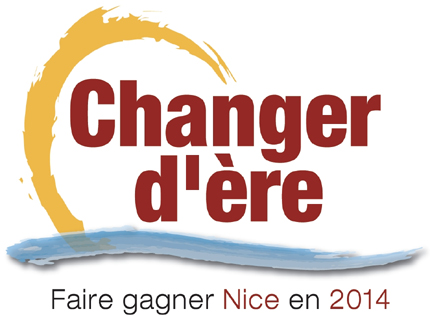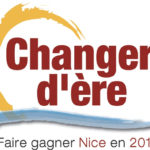“Changer d’ère” believes that the neighborhood councils as set up by the Mayor of Nice, Christian ESTROSI, are actually a distortion of the principle of participatory democracy. Their current operation has very quickly turned into a parody of participatory or proximity democracy. A historical reminder recounting how neighborhood councils were born and how they were set up by Jacques Peyrat and then by Christian Estrosi.

Neighborhood councils are structures that involve residents of a large city in municipal management and are mandatory in municipalities with more than 80,000 inhabitants.
The principle of establishing these neighborhood councils, initiated by an article of the Vaillant Law of February 27, 2002, was approved by opposition municipal representatives at the beginning of Jacques Peyrat’s term as well as considered naturally positive by the members of the group Changer d’ère. The aim was to allow citizens to participate, even modestly, in carrying out certain actions planned in their neighborhoods.
From the beginning of the formation of these neighborhood councils, it was evident that the spirit of the law was not respected by the former mayor. Subsequently, Christian Estrosi followed his predecessor in this path despite his promise that the barriers to participatory democracy would be lifted after his election. Changer d’ère therefore voted “against” during its presentation in the Municipal Council in December 2008.
These neighborhood councils, which could have allowed some degree of democracy through citizen participation in projects formed by one group or another, have never fulfilled the role that the law could have assigned them.
Indeed, the mayor has not changed the appointment of non-elected members of the neighborhood councils: the presidents, vice-presidents, secretaries, sustainable development referents, presidents and representatives of the neighborhood committees, and resident representatives are all appointed by the Mayor. Therefore, what freedom of speech does this assembly have?
The only modification, which can be considered as progress, concerns the representation of elected officials: on the one hand, an elected representative from each opposition group (i.e., 2, one for the group Changer d’ère and one for the Entente républicaine) is part of the neighborhood council and, on the other hand, “territorial general councillors, even if they are in opposition, sit in a consultative capacity.”
Operation
Despite repeated requests to open the sessions to the public (as with the Municipal Council), the plenary sessions are reduced to 2 per year (instead of 4 under Peyrat) and always take place behind closed doors. Therefore, residents can only intervene during the sole annual general assembly. And the publicity concerning the latter is so poorly disseminated that only a handful of citizens attend.
Cities like Lyon or Paris do not hesitate to entrust the neighborhood councils with an autonomous budget, modest but directly managed by them. In Nice, we are far from an autonomous budget. Moreover, one might wonder what this budget would be used for. All the city’s structuring projects are developed by the city services and N.C.A., but never in consultation with neighborhood councils upstream.
Contrary to the operation of the previous mandate, there are no material resources to function. The provision of an administrative office and necessary material resources have disappeared from the provisions previously included in the Estrosi charter.
Lack of consideration of citizen voices in city management.
Citizen remarks regarding the proximity municipal policy decisions are only marginally taken into account. For example, for the Léo Lagrange stadium, neighborhood councils 12 and 13 were gathered to develop a site plan. On the PLU documents, and in the mayor’s projects, the disregard for the neighborhood councils’ requests is glaringly apparent.
This is true for all structuring projects, transport, Gare du Sud, etc., which are presented to us during major ceremonies conducted by the Mayor (fully recorded by television, unlike the Municipal Council).
Christian Estrosi promised wonders in participatory democracy. Listening to him, in Nice, it was going to be even better than in Paris and Lyon…
Unfortunately, this is not the observation of the Changer d’Ere advisors.
The notice that comes from the proximity mission, as well as the attached questionnaire, strangely remind them of the local implementation of a “rump” consultative body just like the communal consultative council.



